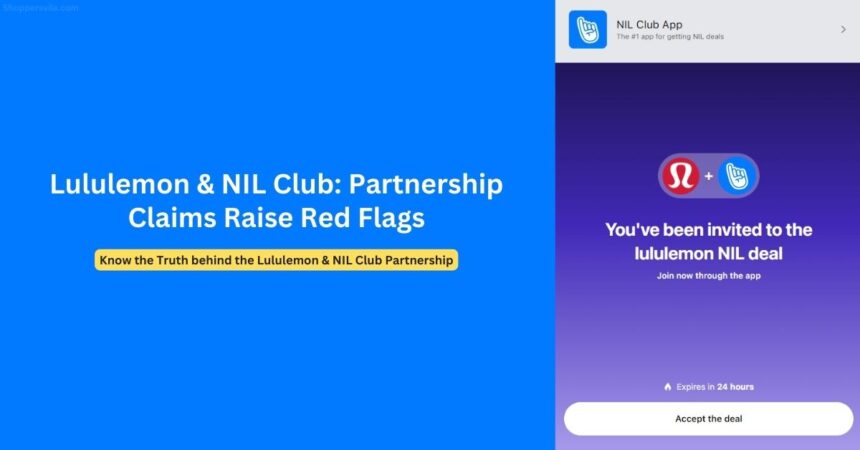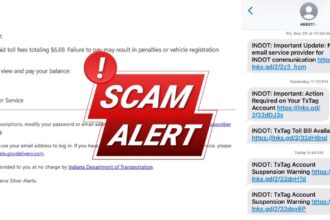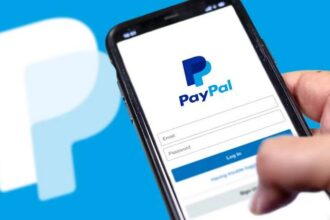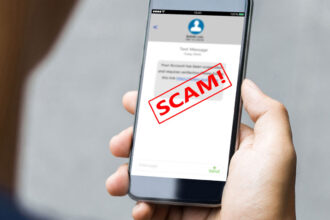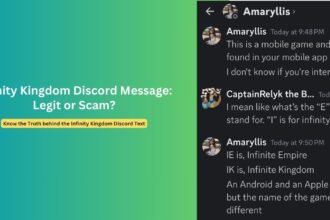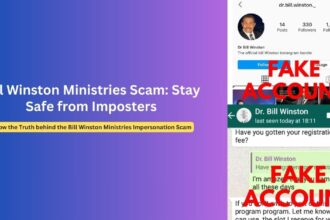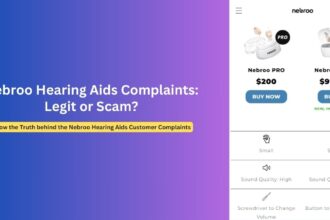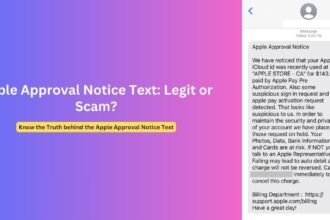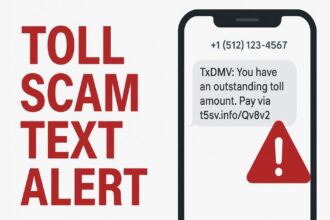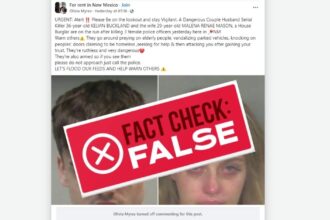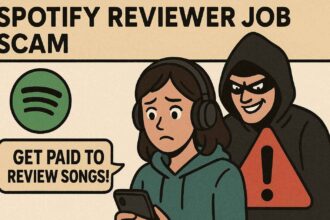Athletic apparel giant Lululemon has established itself as a prominent player in collegiate Name, Image, and Likeness (NIL) partnerships, carefully selecting student-athletes who embody their brand values. Meanwhile, the controversial NIL Club app has been targeting high school athletes with promises of monetization opportunities. With questions swirling about potential connections between these entities, this investigation examines whether claims of a “Lululemon NIL Club Partnership” hold any legitimacy or represent potentially misleading information that could put student-athletes’ eligibility at risk.
The Established Lululemon NIL Program vs. NIL Club App
Lululemon has developed a reputation for thoughtful, strategic NIL partnerships with college athletes since the NCAA’s NIL rules took effect. The Vancouver-based athletic apparel company works with a diverse roster of collegiate athletes across multiple sports, including track and field stars Riley Ammenhauser and Reese Sanders, gymnast Emma Malabuyo, and football standout Jeremiah Smith.
According to industry publication nilnewsstand.com, “Lululemon’s NIL playbook isn’t about chasing headline-grabbing megadeals; it’s about hand-picking ambassadors whose stories mirror the brand’s core values of versatility, wellness, and community impact.”
In stark contrast, NIL Club is a mobile application developed by YOKE Global Inc. that primarily targets high school athletes through unsolicited text messages claiming someone from their school has invited them to join. The app operates on a subscription model where athletes create content that supporters pay to access.
Critically, there appears to be no public evidence of any formal partnership between Lululemon and NIL Club. Lululemon’s verified NIL partnerships and team programs operate through entirely different mechanisms than NIL Club’s subscription-based platform.
Warnings from Athletic Associations About NIL Club
While Lululemon maintains a legitimate collegiate NIL program, numerous high school athletic associations have explicitly warned against student participation in NIL Club:
- The Georgia High School Association (GHSA) issued a statement cautioning: “There can be NO use of the Intellectual Property of the school or association (school name, facilities etc.) in the establishment and operation of an NIL club. By doing so, your athletes could be deemed ineligible per the by-law.”
- Briarcrest Athletics (@BCHS_Saints) warned students: “Do NOT download the ‘NIL Club’ app or respond to any text messages from this network. It could jeopardize eligibility and is not associated with any approved NIL programs.”
- Other schools, including Clearwater Schools in Kansas, have issued similar warnings after their students received unsolicited text messages from NIL Club.
These warnings highlight the significant risk to high school athletic eligibility that participation in NIL Club could pose—a risk that runs counter to Lululemon’s careful approach to amateur athletic partnerships.
Lululemon’s Actual Team and NIL Programs
To understand why claims of a Lululemon-NIL Club partnership raise red flags, it’s important to examine how Lululemon actually engages with teams and athletes.
Lululemon offers a legitimate Team Program that provides discounted apparel to athletic teams. However, this program comes with explicit eligibility warnings:
IMPORTANT NOTICE TO ALL ATHLETES AND TEAMS. You are responsible for ensuring that your use of or participation in the lululemon Team Program does not affect your eligibility as an amateur athlete. Please check with your amateur athletic association for the rules that apply to you.
For individual athletes, Lululemon maintains several distinct programs:
- NIL partnerships with college athletes (as documented by nilnewsstand.com)
- The Sweat Collective program for fitness professionals
- The Ambassador program for community leaders
All of these programs involve direct relationships between Lululemon and the participants—not through third-party apps like NIL Club.
Lululemon’s approach demonstrates a professional understanding of amateur athletic rules, with clear application processes, transparent terms, and explicit directions to consult with athletic associations about eligibility implications.
Red Flags in Claims of a “Lululemon NIL Club Partnership”
Several indicators suggest claims of a partnership between Lululemon and NIL Club should be viewed with extreme skepticism:
- No Official Announcement: Neither Lululemon nor NIL Club has issued any verified press release or official statement announcing such a partnership.
- Conflicting Business Models: Lululemon’s selective approach to NIL partnerships with college athletes contradicts NIL Club’s mass-marketing strategy targeting high school students.
- Eligibility Concerns: Lululemon displays careful attention to amateur athletic eligibility in its Team Program documentation, while NIL Club has received explicit warnings from athletic associations about eligibility risks.
- Targeting Different Demographics: Lululemon’s verified NIL deals are exclusively with college athletes, while NIL Club primarily targets high school students—a population with more restrictive NIL rules.
- Verification Processes: Lululemon requires formal applications for its programs with 10-day review periods, whereas NIL Club uses text message solicitations with claims that “someone from [school name] invited you.”
If you encounter claims about a Lululemon NIL Club partnership, particularly through unsolicited messages, these should be treated with significant caution.
Potential Consequences of Confusion
For student-athletes, particularly those in high school, confusion around legitimate NIL opportunities versus potentially problematic ones carries serious risks:
1. Eligibility Issues
High school athletic associations have strict rules about amateurism. The Georgia High School Association specifically warned that participation in NIL Club could make athletes “ineligible per the by-law.” This concern would extend to any implied association with legitimate brands like Lululemon.
2. Privacy Concerns
Multiple users have reported that NIL Club requests access to contacts and may send messages to those contacts without clear consent. This raises significant privacy concerns that wouldn’t be expected from legitimate brand partnerships.
3. Financial Expectations
While Lululemon offers clear benefits through its programs (product discounts or direct sponsorship agreements), NIL Club users have reported minimal earnings—”maybe $10/week each” according to one claimed coach on Reddit.
4. Consumer Protection Issues
The Better Business Bureau has given NIL Club a 1-star rating, with subscribers reporting “a lack of communication and an inability to get refunds.” This stands in sharp contrast to Lululemon’s established reputation and business practices.
How to Verify Legitimate NIL Opportunities
For student-athletes interested in pursuing NIL opportunities, here are steps to verify legitimacy:
- Consult Athletic Administrators: Always discuss potential NIL opportunities with your school’s athletic department or compliance office first.
- Verify Through Official Channels: Legitimate partnerships will be verifiable through a company’s official website, social media accounts, or press releases.
- Be Wary of Unsolicited Messages: Authentic opportunities rarely come through unexpected text messages claiming someone has “invited” you.
- Check Athletic Association Rules: Different states and associations have different rules for high school NIL activities—know yours before proceeding.
- Research the Company: Check Better Business Bureau ratings and read reviews from other athletes who have participated.
- Look for Clear Terms: Legitimate opportunities will have transparent terms regarding compensation, rights, and expectations.
- Protect Your Data: Be cautious about granting apps access to your contacts or personal information.
FAQ: Understanding NIL Partnerships
1. Is Lululemon’s NIL Club Partnership Legit or a Scam?
There appears to be no verified partnership between Lululemon and NIL Club. Lululemon maintains legitimate NIL partnerships with selected college athletes and offers a Team Program with clear eligibility warnings, but these operate independently from NIL Club. Any messages suggesting a connection between the two should be treated with extreme caution.
2. How does Lululemon actually work with athletes?
Lululemon works with college athletes through individual NIL partnerships, selecting those who embody their brand values of “versatility, wellness, and community impact.” They also offer a Team Program providing discounted apparel to athletic teams, with clear warnings about checking eligibility with athletic associations. These programs involve direct relationships with Lululemon, not through third-party apps.
3. Can high school athletes participate in NIL deals?
Rules for high school athletes vary significantly by state and athletic association. Some states permit limited NIL activities, while others prohibit them entirely. Many high school athletic associations have strict rules about using school intellectual property (names, logos, facilities) in NIL arrangements. Always consult with your school’s athletic department before pursuing any NIL opportunity.
4. How can I tell if an NIL opportunity is legitimate?
Legitimate NIL opportunities typically come through official channels, have transparent terms, clearly state compensation, and explicitly address eligibility concerns. Be wary of unsolicited messages, vague promises, requests for contact access, or any arrangement that seems too good to be true. When in doubt, consult with your athletic department or compliance office.
5. What should I do if I’ve already signed up for NIL Club?
If you’re concerned about your eligibility after signing up for NIL Club or similar services, immediately consult with your school’s athletic department or compliance office. Consider removing the app, revoking any permissions granted, and documenting your actions. Be transparent with athletic administrators about your situation to find the best path forward.
Conclusion: Due Diligence Protects Athletic Futures
The world of NIL opportunities is still evolving, particularly at the high school level. While legitimate partnerships like those Lululemon maintains with college athletes can provide valuable opportunities, student-athletes must approach all NIL offers with careful scrutiny.
Claims of associations between established brands like Lululemon and controversial platforms like NIL Club warrant particular caution. The stark differences between Lululemon’s careful, transparent approach to athletic partnerships and NIL Club’s mass-marketing tactics targeting high school students suggest any claimed partnership should be thoroughly verified through official channels.
For high school athletes, the stakes are especially high. Athletic eligibility, privacy, and consumer protection are all potential concerns when engaging with unverified NIL opportunities. Before pursuing any NIL relationship, consult with your athletic department, research the opportunity thoroughly, and verify through official channels.
As the NIL landscape continues to develop, education remains the best protection against potential misinformation. By understanding how legitimate NIL partnerships operate—with transparency, clear terms, and respect for eligibility rules—student-athletes can better navigate this complex terrain and make informed decisions about their athletic futures.
Remember: a legitimate opportunity will welcome your due diligence, not rush you into decisions through unsolicited messages claiming someone has “invited” you to participate.
